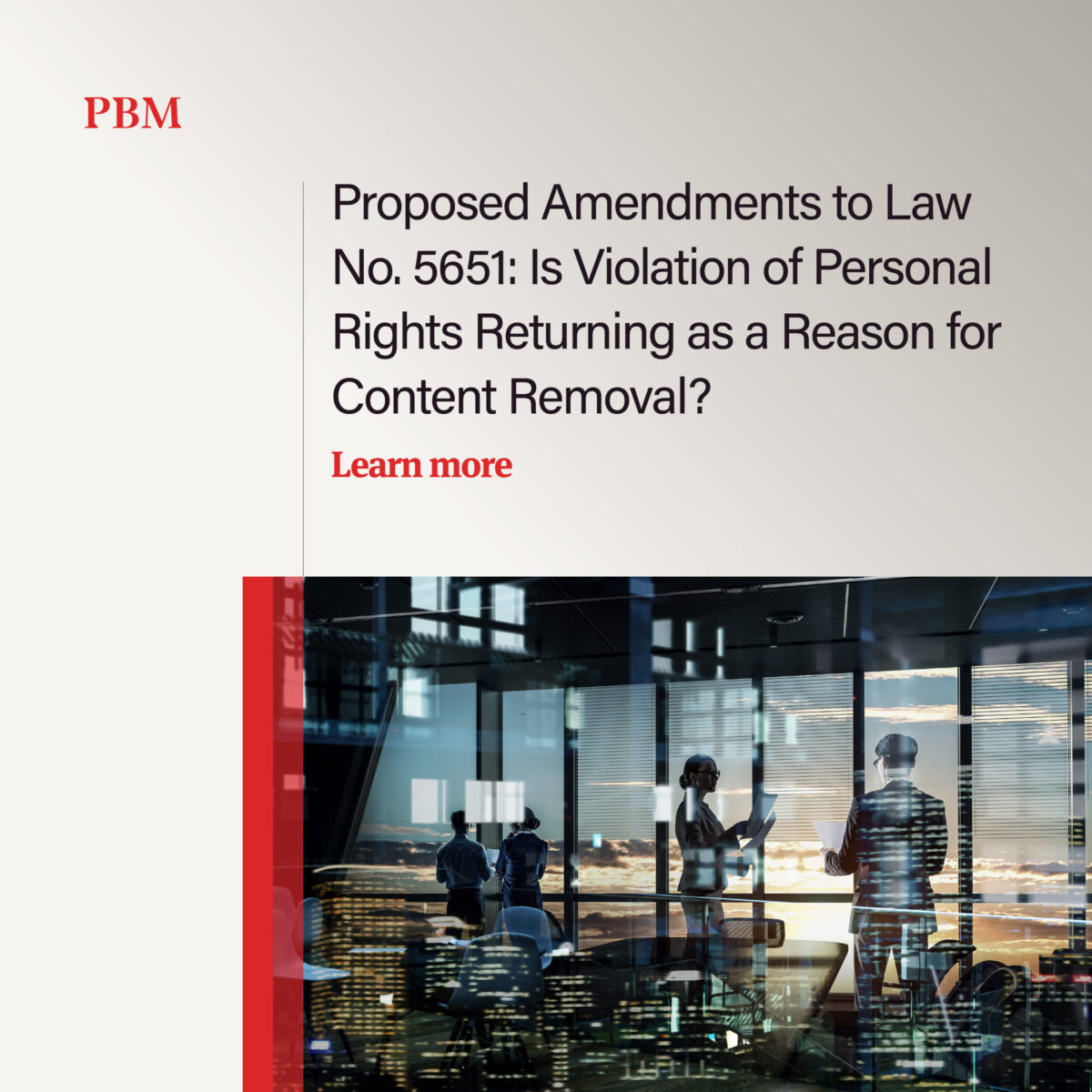5651 Sayılı Kanun’da Yapılması Öngörülen Değişiklikler: kişilik haklarının ihlal edilmesi içerik kaldırma nedeni olarak geri mi dönüyor?
June 3, 2025Kripto Varlık Hizmet Sağlayıcılarına Yönelik Uzaktan Kimlik Tespiti Yükümlülüğü Getirildi
June 16, 2025
Proposed Amendments to Law No. 5651: Is Violation of Personal Rights Returning as a Reason for Content Removal?
The proposed amendments to Law No. 5651, the “Law on the Regulation of Publications Made on the Internet and the Fight Against Crimes Committed by Means of These Publications” (the “Draft Law”), were submitted to the Turkish Grand National Assembly of Turkey (“TGNA”) on 29 May 2025, as part of the Tenth Judicial Package.
The main amendments proposed under the Draft Law are as follows:
- The phrase “removal of content from publication” in the current regulation will now be defined as “removal of content from the internet environment.” This is because, in practice, even if the content is removed from the relevant site, it can still persist in search engines. With this amendment, content can be completely removed not only from the site where it was published but also from the internet environment and stored in a way that it can be retrieved when necessary.
- The definition of “notice method” has been introduced, with the aim of giving a legal basis and obligation to the notice-and-removal system.
- The provision regarding the violation of personal rights as a ground for removing content, which was annulled by the Constitutional Court, is re-introduced into the regulation, and the person concerned is granted the right to apply to the magistrate’s court of peace.
- Pursuant to the Draft Law, if individuals claiming that their personal rights have been violated request it, the magistrate’s court of peace is entitled to decide that the applicant’s name should not be associated with the relevant internet addresses in situations where the violation is apparent at first glance, without the need for a detailed examination. The decision will include the search engines to be notified. In situations where the violation is not apparent at first glance without the need for a detailed examination, the application will be rejected.
- Judge of the Criminal Court of Peace will issue a decision only limited to the publication in which the violation occurred. A decision to block access to the entire publication on the website cannot be made. However, if it is believed that the violation cannot be prevented by blocking access to the content by specifying the URL address, or if the decision to remove the content has not been fulfilled, a decision to block access to the entire publication on the website may be made, provided that the justification is clearly stated.
- The decision rendered by the Judge of the Criminal Court of Peace will be sent directly to the Union (presumably a relevant industry association) to be notified to access providers and related content and hosting providers. This decision will be notified by the Union to access providers and related content and hosting providers. Upon notification, the decision will be executed immediately and within a maximum of 4 hours.
- The Draft Law stipulates that if social network providers do not implement the content removal decisions, their internet bandwidth can first be reduced by 50% and then up to 90%. These decisions are subject to judicial approval, and the rate can be determined by taking into account the nature of the service.
The Draft Law will enter into force upon its publication in the Official Gazette following approval by the TGNA. As of the date of this writing, it has not been approved by the TGNA.


